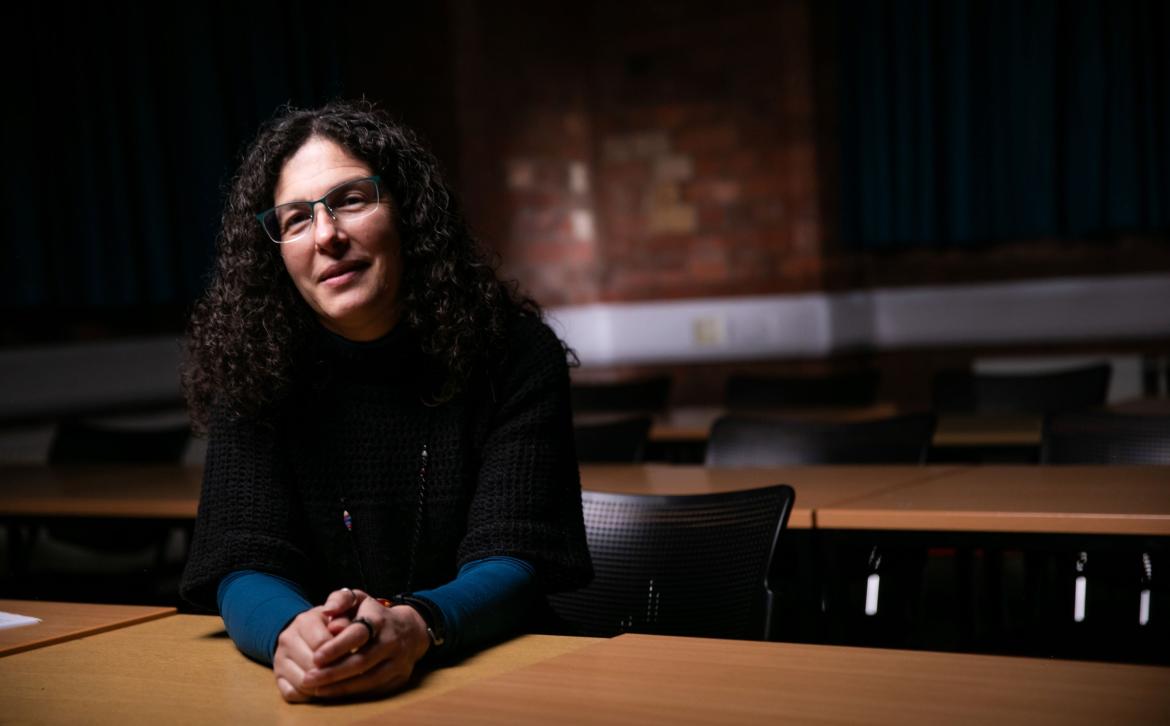We are ambitious, yet firmly rooted in experience.
We continue to connect knowledge with practical applications to deliver tangible, lasting benefits for people and communities in the Greater Manchester city region and beyond.
We are transforming lives, we’re stimulating discovery and we’re realising potential in our city region and beyond.
It starts in Salford. A place where ideas are formed that shape the world.
At the University of Salford, we are proud to be at the heart of the world-leading innovations around social change and economic development that have defined Salford and Greater Manchester since the industrial revolution and transformed it into the thriving city region it is today – a place where ideas are formed that shape the world.
We take pride in our ability to blend real-world experience with cutting-edge research; a combination that propels us forward as unstoppable innovators committed to achieving meaningful impact.

Through collaborative partnerships, we ensure that our research not only meets the highest academic standards but also translates into practical solutions that benefit society on a local and global scale.
Whether it’s through collaborations with SMEs to drive innovation, partnerships with large businesses for impactful research, or working closely with charities and policy makers to influence positive change, we are dedicated to delivering a lasting economic and social benefit to drive us towards a more prosperous world.
Our mission remains true to our founding principles; transforming lives, stimulating discovery, and realising potential.
At the University of Salford, we find solutions to the really hard to solve problems facing the world around us.
From our unique position at the heart of the community, we empower those around us to transform the everyday lives of people in Salford and beyond. We work with our partners to improve healthcare, help people with their energy bills, make the world sound better, boost the economy and influence policy.
Our research revolves around four themes. These themes are not just focal points; they are pathways to a future where knowledge is a catalyst for positive change.
By strategically aligning our research endeavours with these themes, we are dedicated to shaping a more prosperous world where productivity thrives, communities flourish creatively and resiliently, environments are sustainable, and living healthily is a shared aspiration.
We explore the mechanisms driving the success and wellbeing of individuals, organisations and society by drawing on our long history of working with local, national and international businesses and policymakers on issues around economic development.
We look to support a society where individuals can thrive in good health by exploring a wide range of issues linked to physical, mental, and social wellbeing.
We aim to address environmental challenges and ensure a sustainable future for generations to come by developing strategies to support a resilient and balanced coexistence between humanity and the natural world.
We enable communities to navigate challenges, adapt to change, and flourish through creative problem-solving by working together to co-create innovate research agendas which lead to collaborative solutions.
We continue to connect knowledge with practical applications to deliver tangible, lasting benefits for people and communities in the Greater Manchester city region and beyond.
Read how our research experts are hitting the headlines.